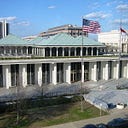Throwback: ‘State Budgets Zoomed During Boom Years Only to Run into Recessionary Brick Walls’
Now: Robust Savings Provides Cushion Amid Revenue Shortfalls
Raleigh, N.C. — It’s a tale as old as time. When Democrats controlled the state’s purse strings they went on spending sprees and failed to adequately save money for times when the state would need it the most.
That left North Carolina ill-prepared to respond to natural disasters and the last recession. The Democrats passed their budgetary blunders on to the citizens of North Carolina through tax hikes. When that wasn’t enough, they cut spending to core obligations, including teacher pay.
Democrats, during boom years, did not prioritize saving for the future. When the recession hit, they spent as much as they could of the state’s savings and took years to start replenishing it.
When Republicans gained majorities in 2011 they began methodically building up the state’s savings, anticipating natural disasters like Hurricanes Matthew and Florence, and the potential for another economic downturn. Since 2016, the state has spent more than $1.4 billion of its savings to respond to those disasters, and still have built up a robust savings account.
In fiscal year 2010–11 the state’s savings reserves — often called the Rainy Day Fund — was $296 million. Since then it has built up to nearly $1.17 billion.
Now, faced with a multi-billion dollar revenue shortfall, the state’s Rainy Day Fund, coupled with a more than $2.4 billion unreserved cash balance, will provide a much-needed cushion as lawmakers balance the state budget.
“We had to make a lot of tough decisions over the years in order to balance the immediate needs of the state while also saving for the future,” Senate budget writer Sen. Harry Brown (R-Onslow) said. “After the last recession the state’s financial outlook was grim. Thanks to thoughtful number crunching we were able to bring North Carolina out of the abyss of the recession and help the economy flourish.”
Sen. Brown continued, “In the face of natural disasters, the state was able to dip into its savings and provide relief to our citizens. As we fight our way through this pandemic, we’re better positioned to respond to this crisis than ever before.”
After the passage of House Bill 7 in 2017, which created specific conditions for using funds in the reserve and a savings deposit rule based on revenue growth, Pew Charitable Trusts determined North Carolina was in better shape to respond to a recession.
“In terms of best practices for deposits, withdrawals, and for setting an optimal savings cap, North Carolina is the only one that matches all those marks right now,” Pew Charitable Trusts told The Carolina Journal at that time.
